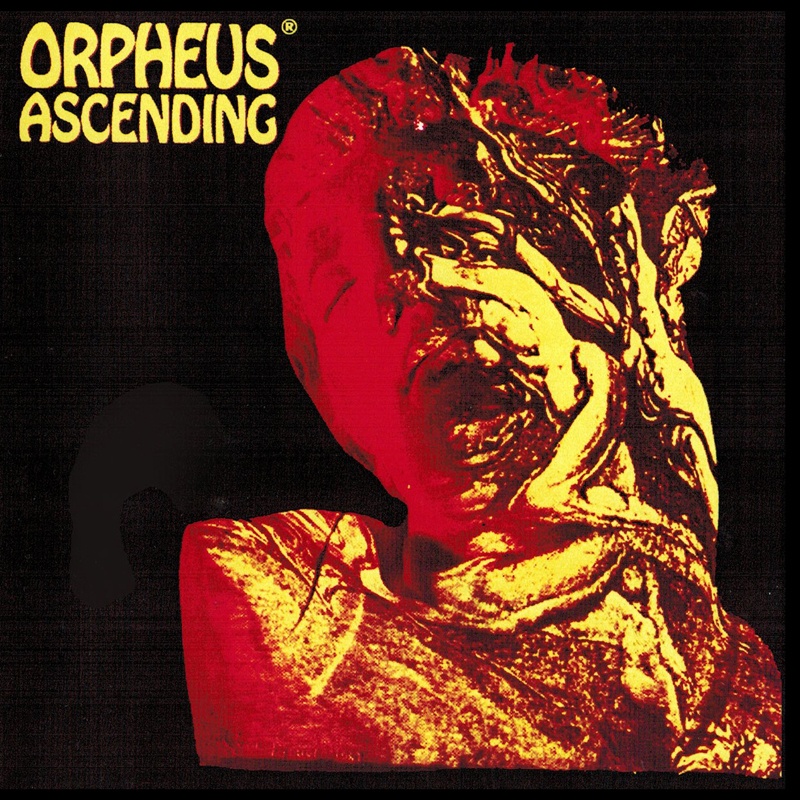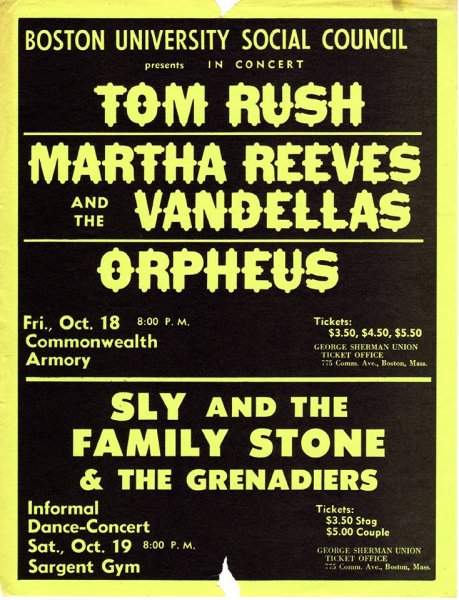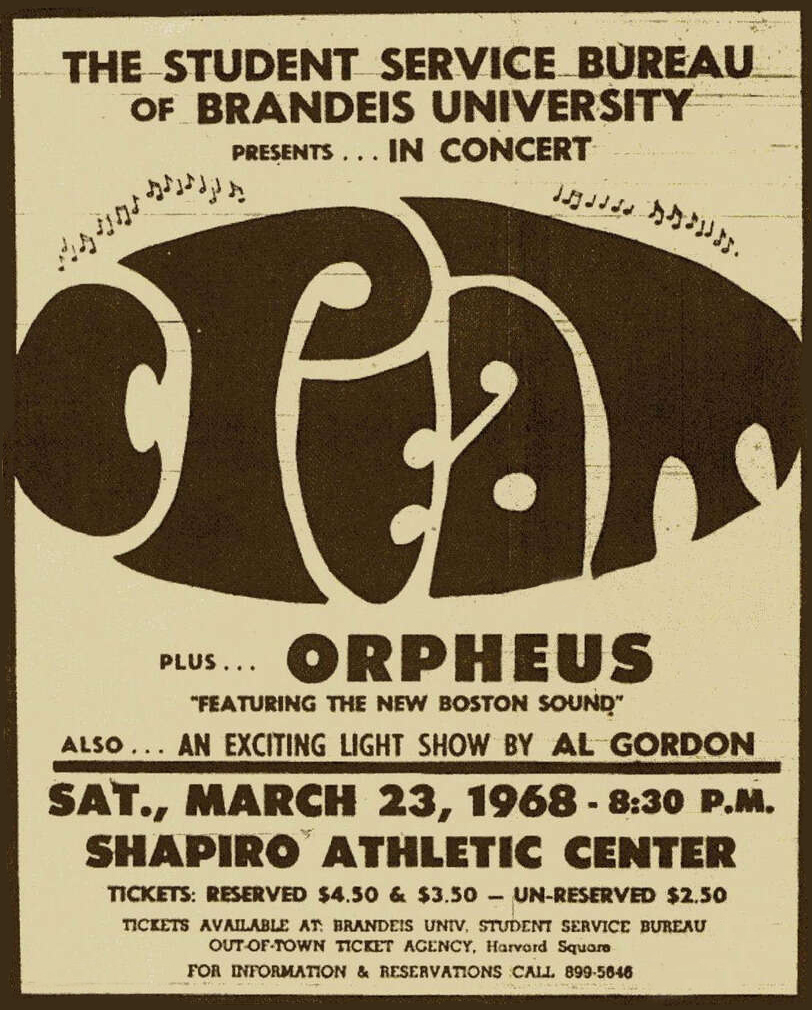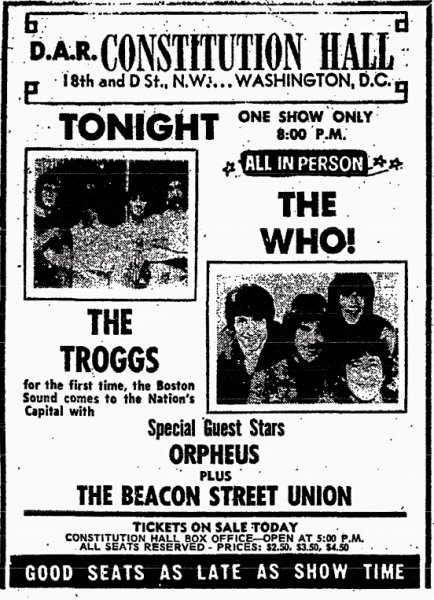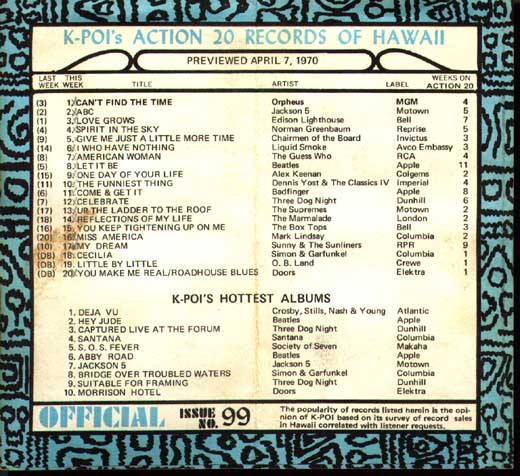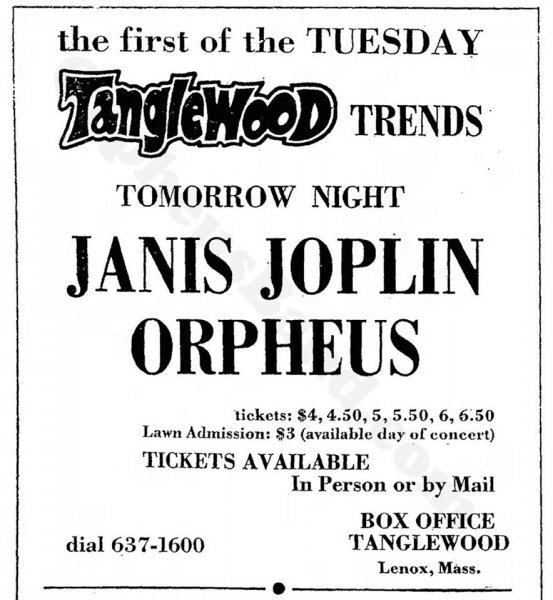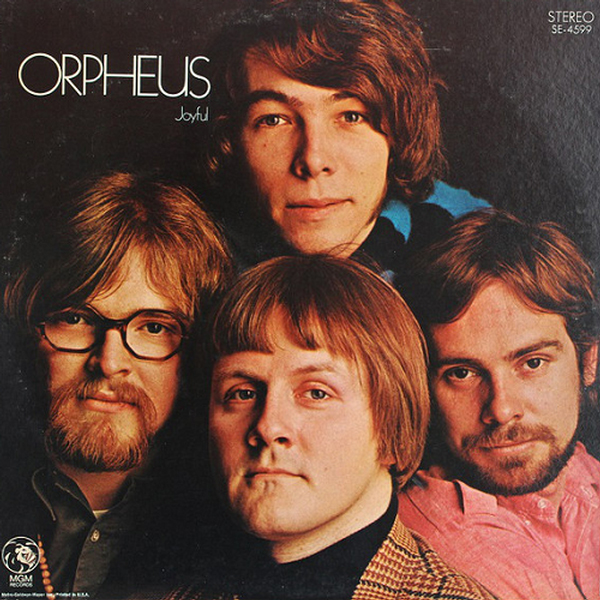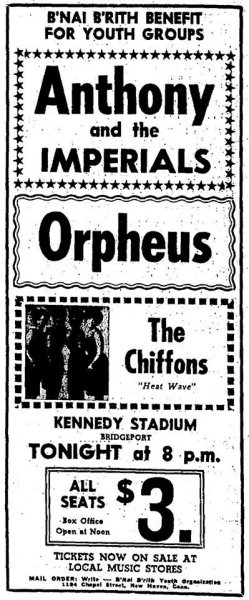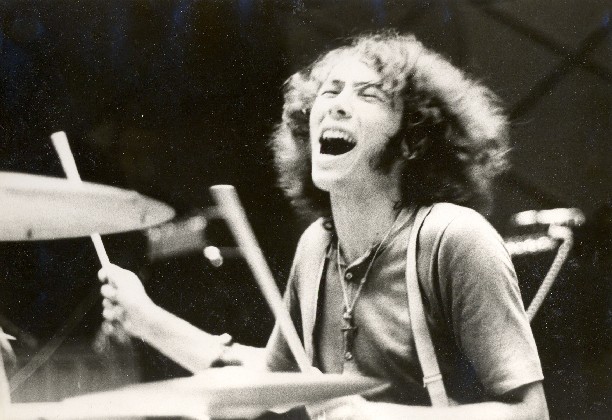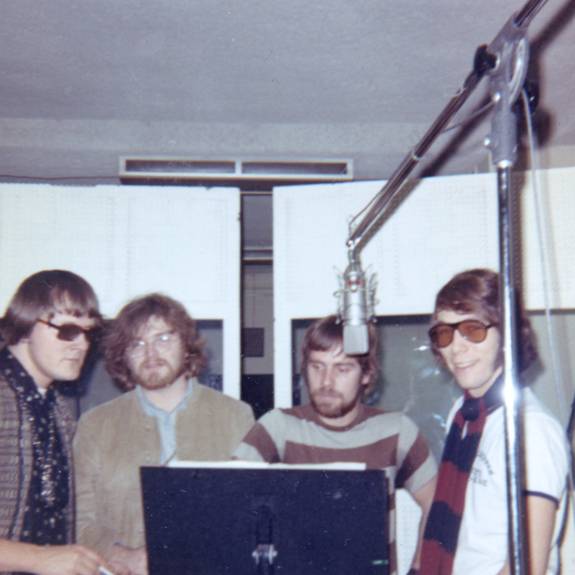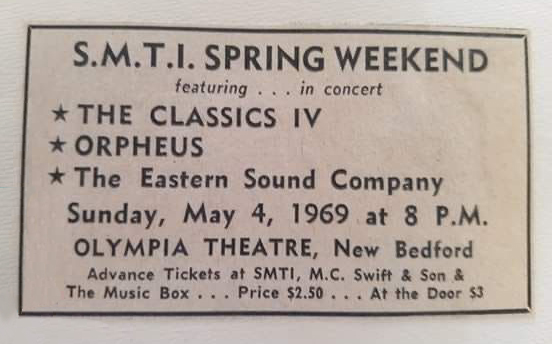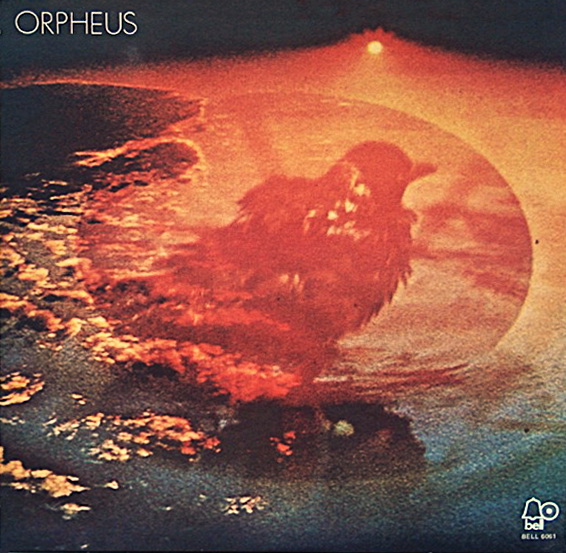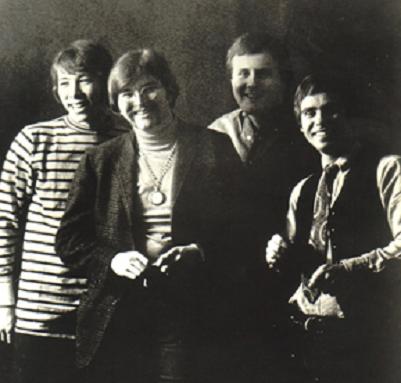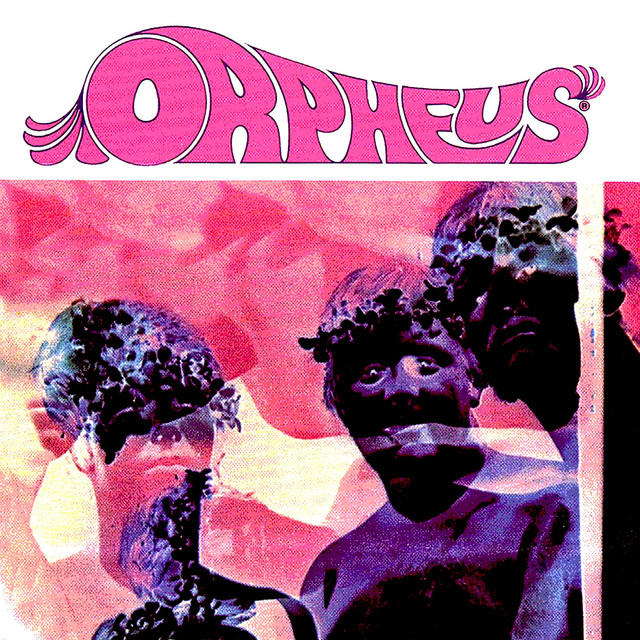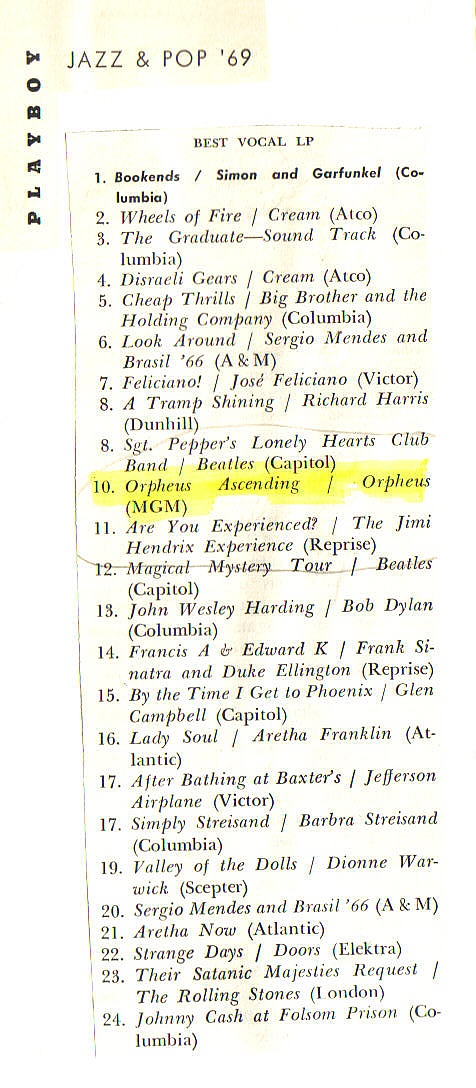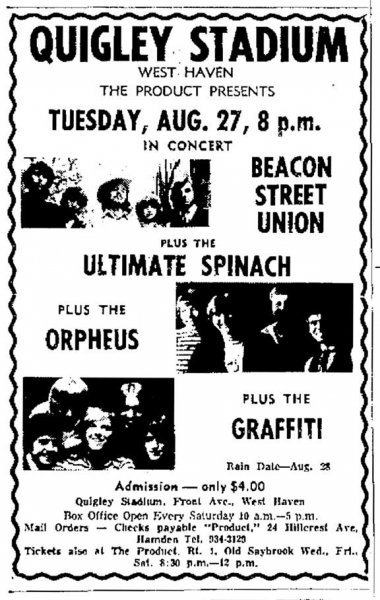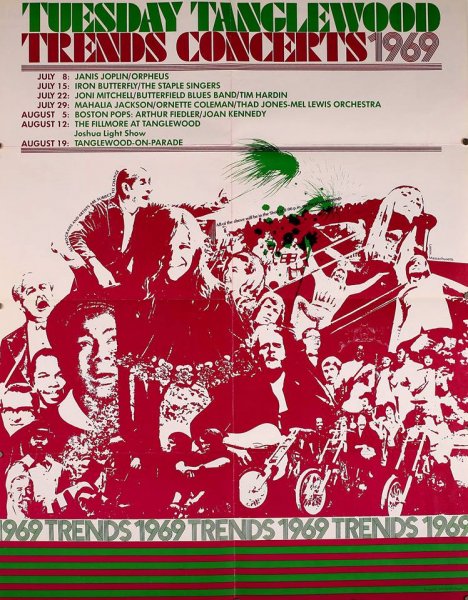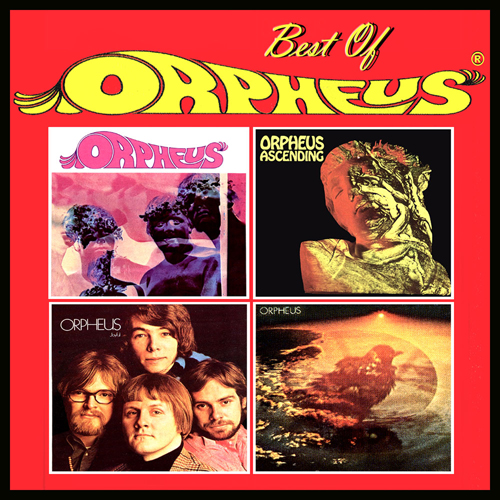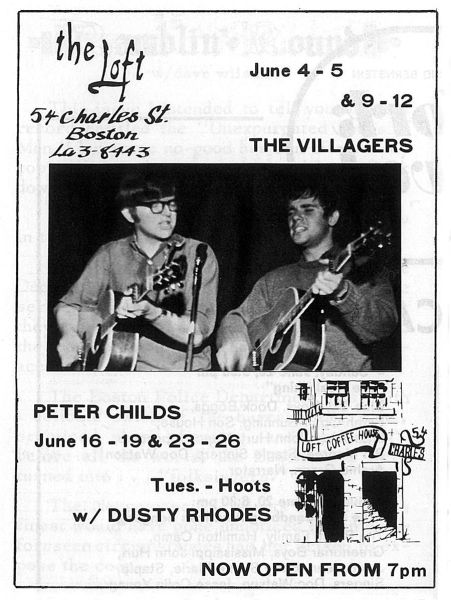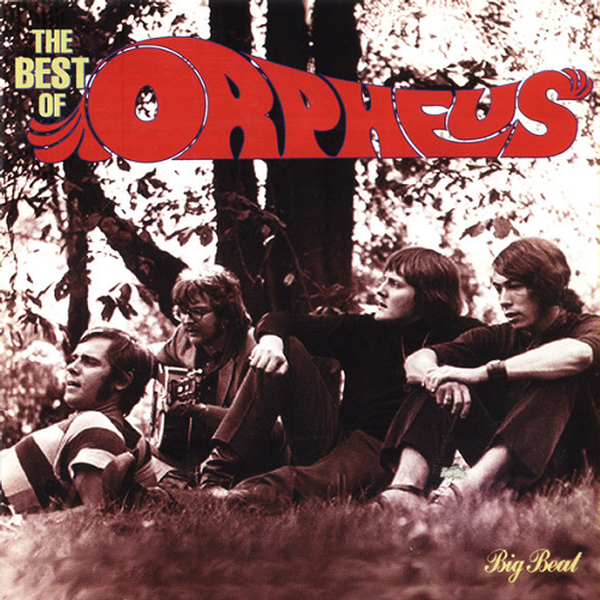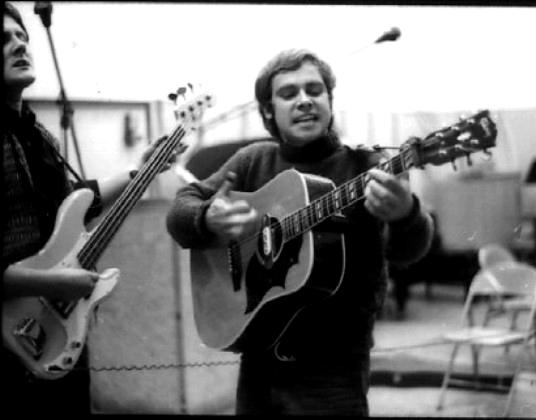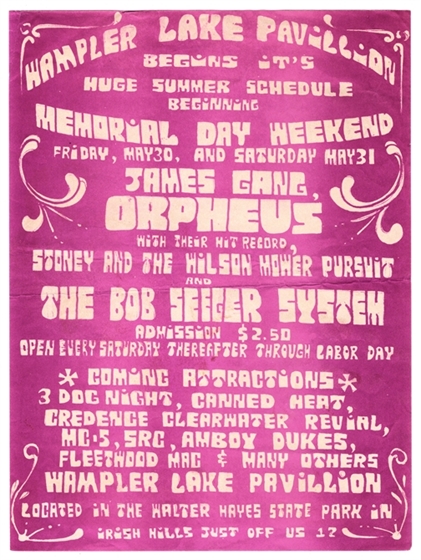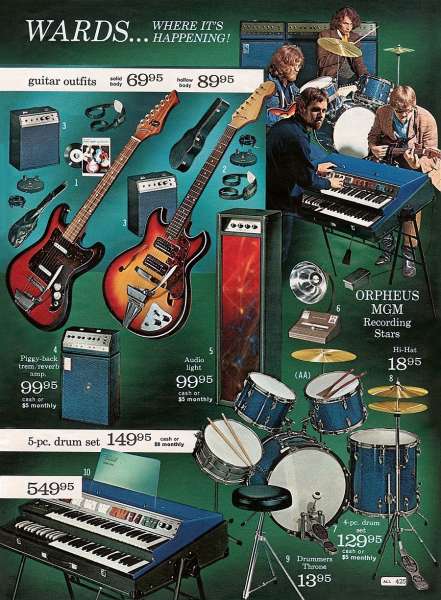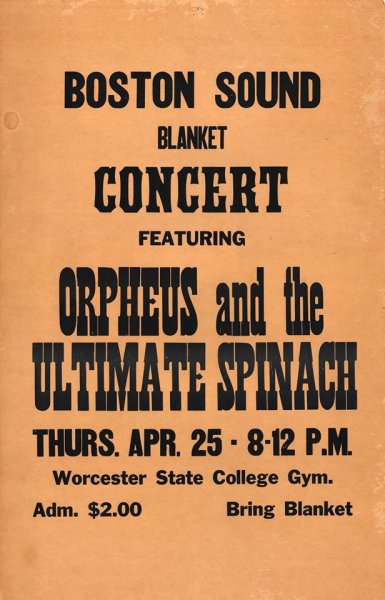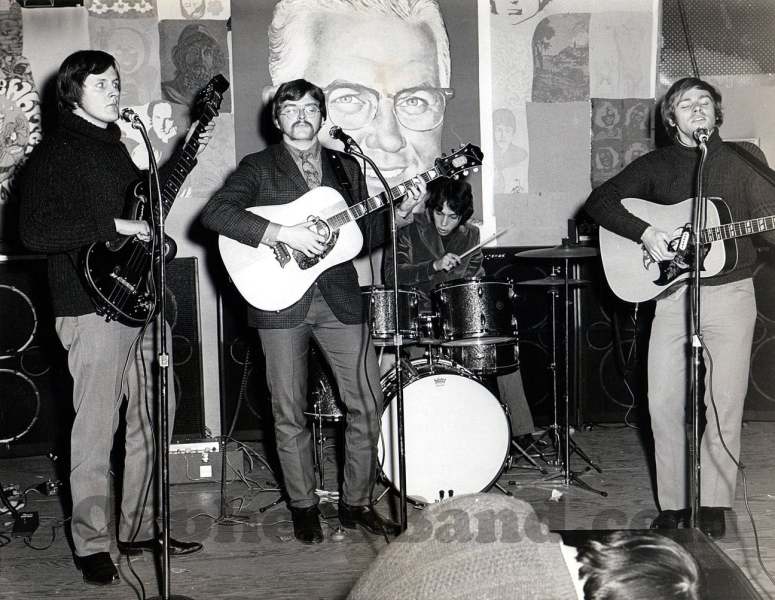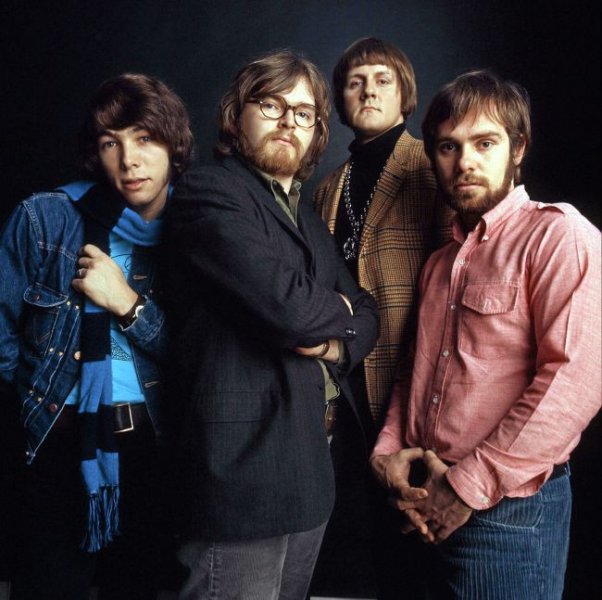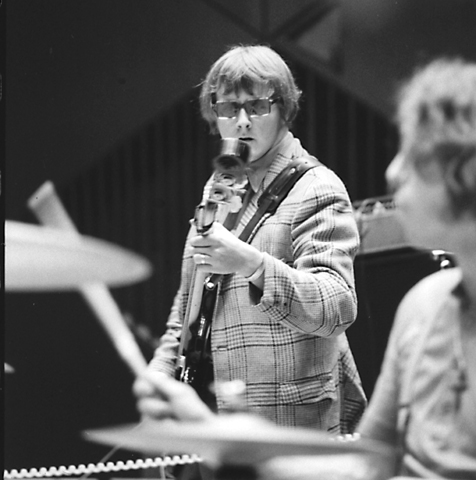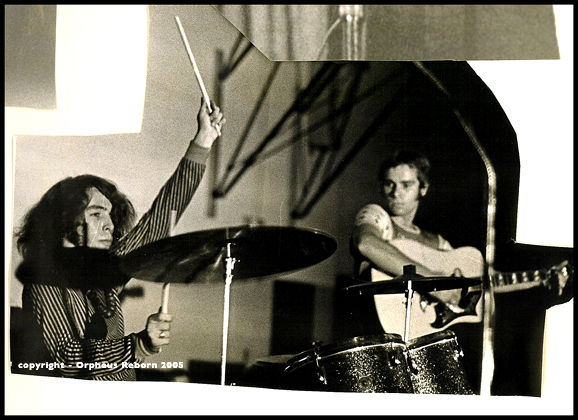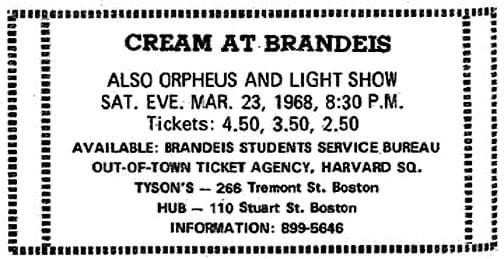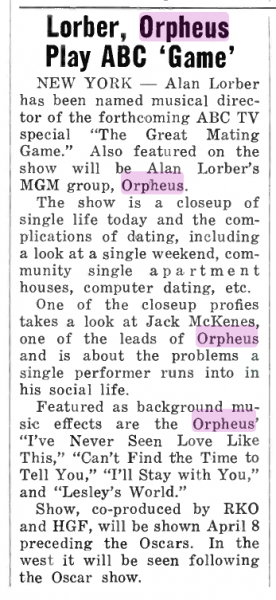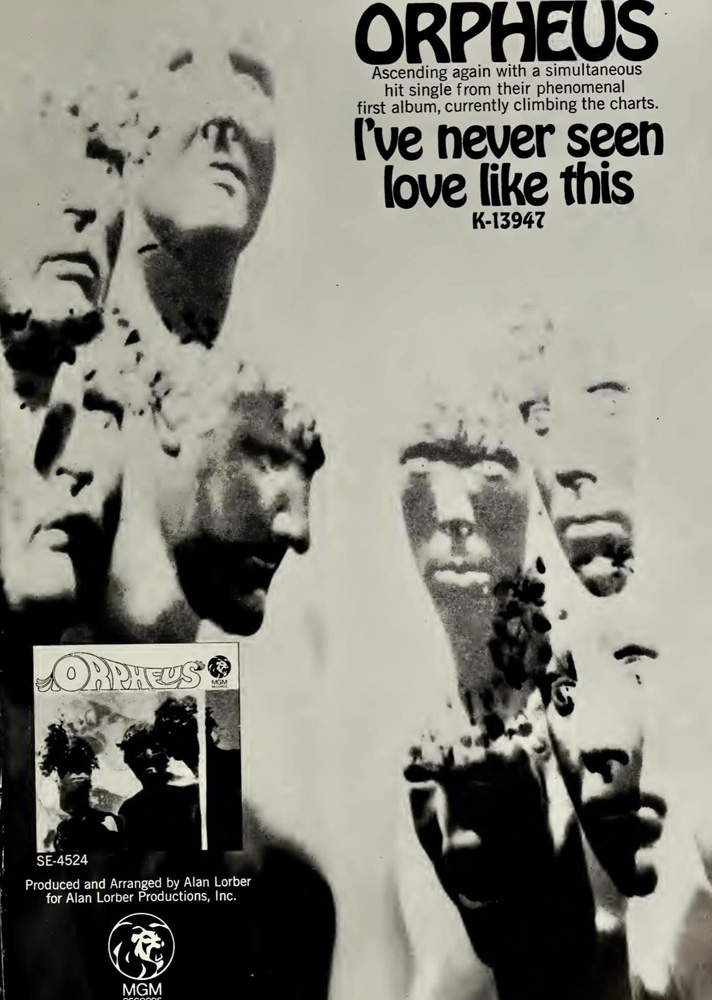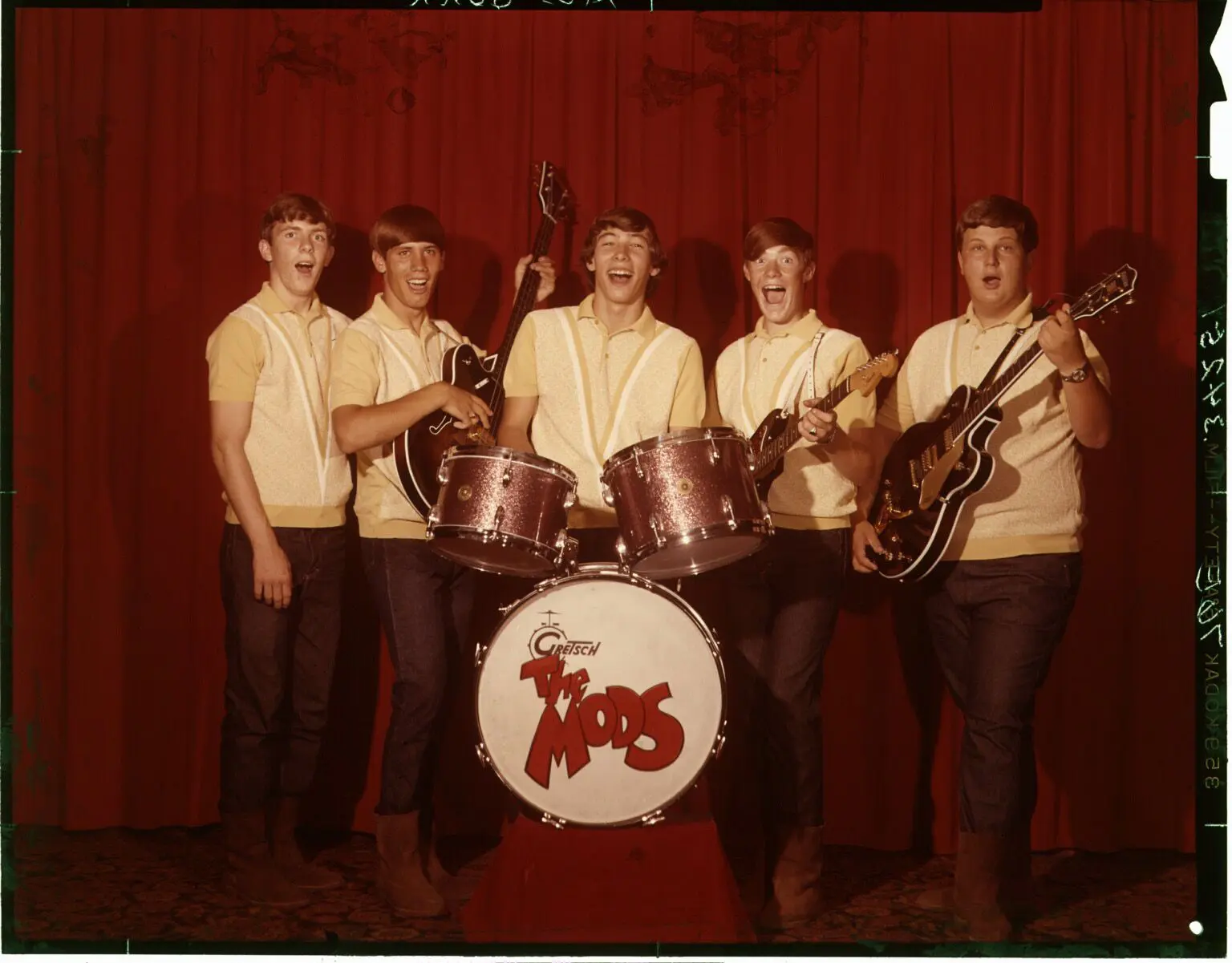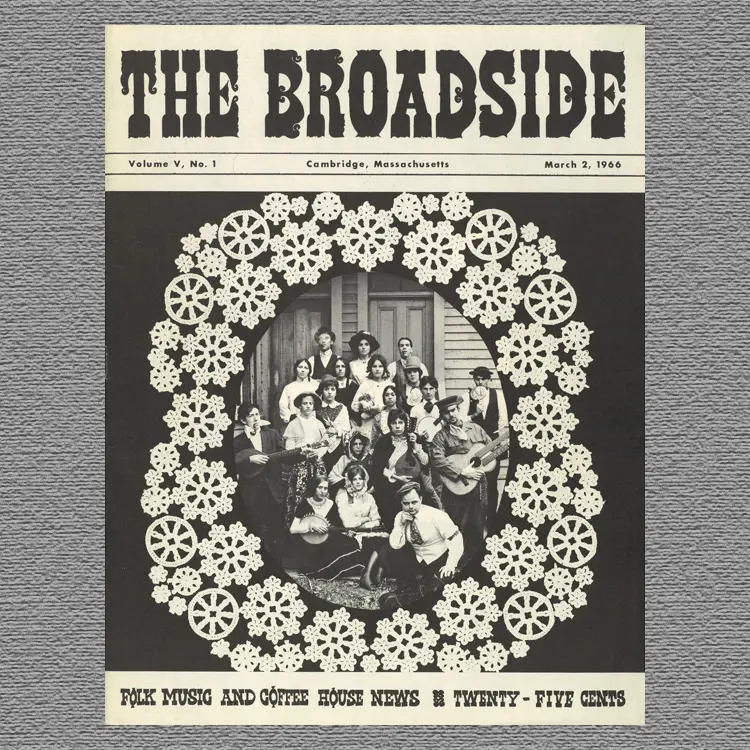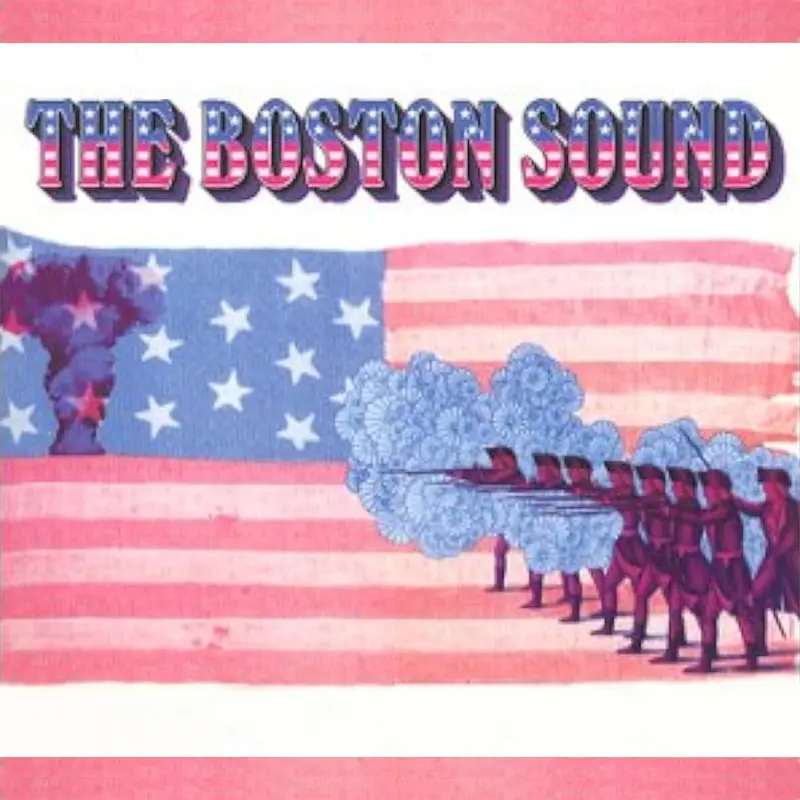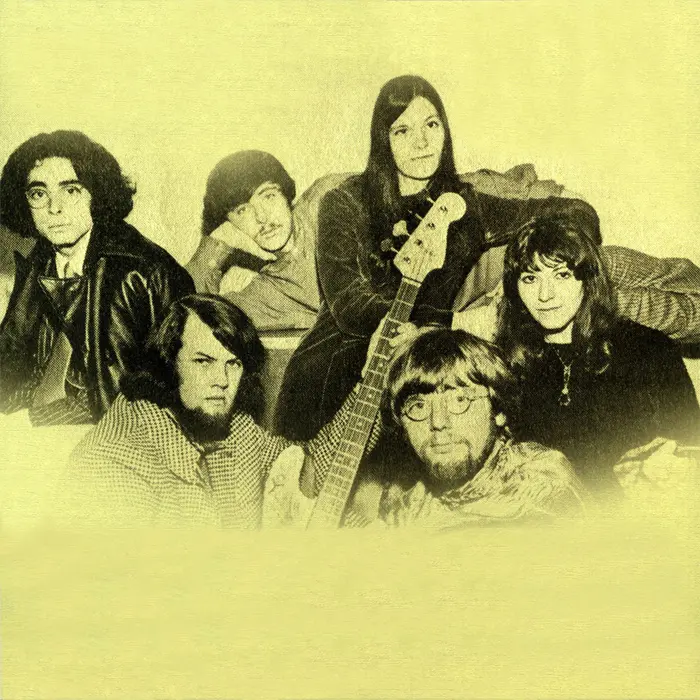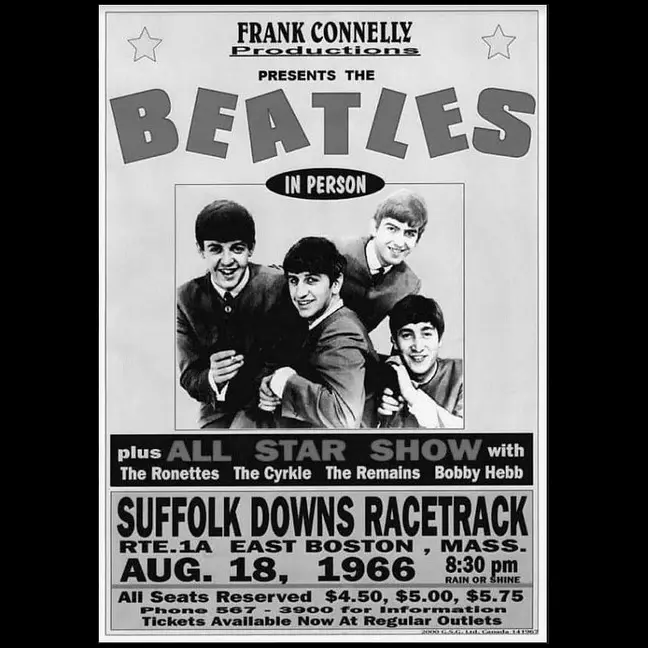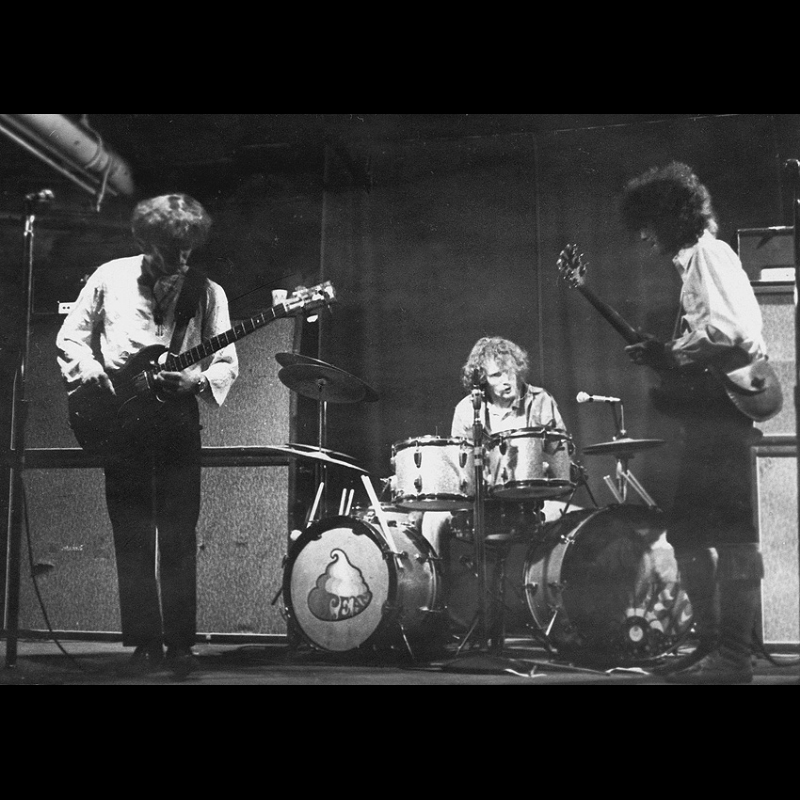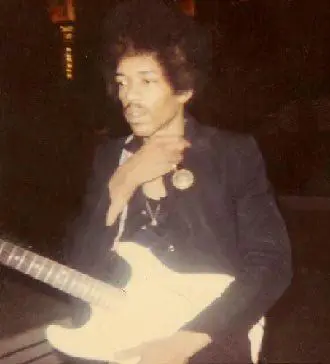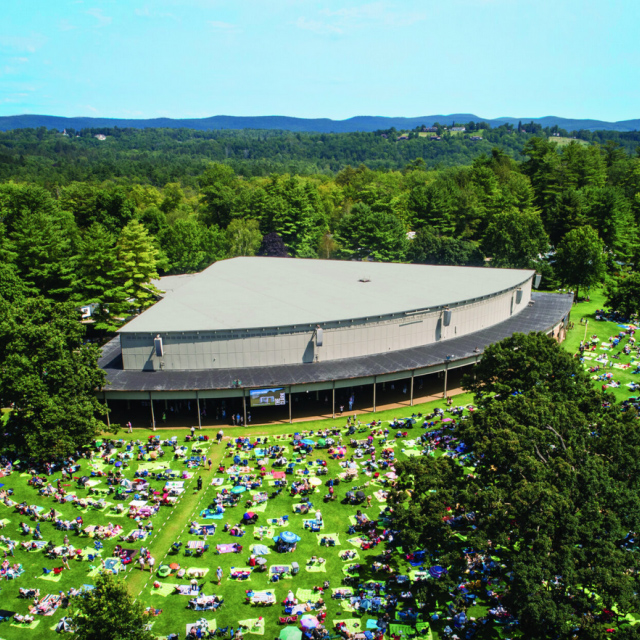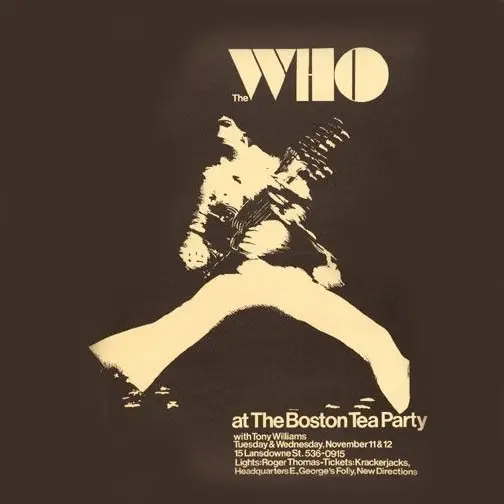Orpheus
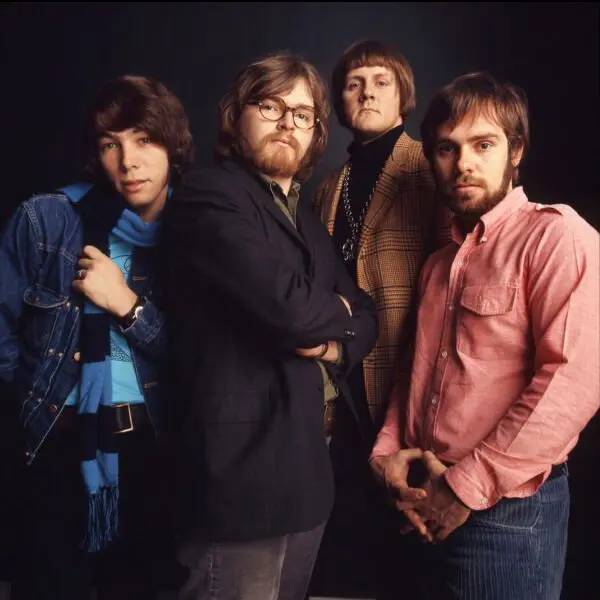
The band that eventually became Orpheus started in 1963 as the Worcester-based folk duo The Villagers, comprised of singers-guitarists Bruce Arnold and Jack McKennes. The pair had established themselves as one of New England’s premier folk acts and were voted Best Folk Duo twice in The Broadside magazine’s reader’s polls.
By 1967, however, the folk craze was waning and it seemed that Bob Dylan “going electric” at the Newport Folk Festival two years before had been a harbinger of folk’s dramatic drop in popularity. Deciding to follow Dylan’s lead, the first step Arnold and McKennes took was bringing in bassist Eric “The Snake” Gulliksen, also from Worcester. They rehearsed as a trio for several weeks, playing Arnold’s arrangement of Elvis Presley’s 1956 hit “Don’t Be Cruel” and a new song he’d just written – “Can’t Find the Time.”
FORMATION, MGM SIGNING, “THE BOSSTOWN SOUND”
Orpheus formed in 1967, when drummer Harry Sandler joined the group. Arnold and Guilliksen wrote most of the material. The band signed with MGM Records and producer Alan Lorber, who championed the marketing concept of “the Bosstown Sound” (a play on “Motown”) and used it to promote several other Boston-based acts including Ultimate Spinach and The Beacon Street Union. Lorber told the group that MGM was willing to invest “several hundred thousand marketing dollars” in Orpheus’ debut album and the band spent November 1967 through January 1968 in the studio.
DEBUT ALBUM, “CAN’T FIND THE TIME,” VIDEO, EARLY APPEARANCES
Orpheus’ self-titled debut LP, featuring the single “Can’t Find The Time,” was released in early 1968, produced with the type of orchestration for which Lorber was known. “Can’t Find the Time” reached #80 in the Billboard Hot 100 and to support the album the group recorded one of first scripted music videos.
Never having played a paying gig before, Orpheus hit the road to prepare for its official debut – opening for Kenny Rankin in Greenwich Village a couple weeks later – and played shows in Detroit, Philadelphia and Chicago before arriving in New York City. While there, they made videos of themselves lip-synching to “Can’t Find The Time” and “I’ve Never Seen Love Like This” for a TV show, Live from the Bitter End. The videos were released in 1996 as part of Live From Greenwich Village, Volume Six, then reissued on the DVD collection Folk in New York City, Vol. 5 – 7.
ASCENDING, JOYFUL, POPULAR OPENING ACT
In April 1968, just three months after finishing their debut album, the band recorded its sophomore effort, Ascending, which landed at #10 on Playboy’s Best Vocal LP list that year, between The Beatles’ Sgt. Pepper’s Lonely Hearts Club Band and Jimi Hendrix’s Are You Experienced? In 1969, MGM released the third Orpheus record, Joyful, featuring the single “Brown Arms in Houston,” which charted well. One critic said the album was “equal to their outstanding debut.”
Orpheus supported several major acts including Cream at Brandeis University in Waltham, Massachusetts. They opened three shows for The Who and others for Led Zeppelin, Blood, Sweat & Tears, The Young Rascals, Ten Years After, The Brooklyn Bridge and – at classical-music mecca Tanglewood – Janis Joplin with Big Brother & the Holding Company.
LINEUP CHANGE, FINAL ALBUM, COVER VERSIONS, SOUNDTRACKS
Following Joyful’s release, Orpheus’ original incarnation broke up but Arnold reformed the group in 1971 and the new quartet recorded fourth and final record, titled Orpheus like the band’s debut. The revamped lineup included songwriter, vocalist, guitarist and harmonica player Stephen Martin, who’d written a number of songs that appeared on the band’s other albums.
“Can’t Find The Time,” Orpheus’ signature song, was recorded by folk-rock band Rose Colored Glass in 1971 and by Hootie & the Blowfish in 2000 for the Farrelly brothers’ movie Me, Myself and Irene. In 2022, producer-director Peter Farrelly included the original Orpheus version in his film The Great American Beer Run, and the song continues to be played on radio stations across New England and the greater US.
DEATHS, CURRENT ACTIVITY
In October 2022, Bruce Arnold passed away at age 76. “He was a tremendously talented and original guitarist who, with his bandmates, created a meaningful body of work,” said original Orpheus drummer Harry Sandler, who currently lives in Brookline, Massachusetts. Founding member Jack McKennes lives in Worcester.
Eric “The Snake” Gulliksen died in June 2023 at age 81. From 2007 until Covid shutdowns, he performed as half of the duo Stephen and the Snake (with Stephen Martin) and ran the soundboard at the Catbird Café in Weymouth, Massachusetts. As a solo guitarist and vocalist, he appeared at dozens of open mics throughout New England, seven days a week, sometimes two or three a day. “Snake was a talented performer and a gentle soul, beloved by all whose lives he entered,” said Martin. “He is missed and will be long remembered.”
(by D.S. Monahan)

